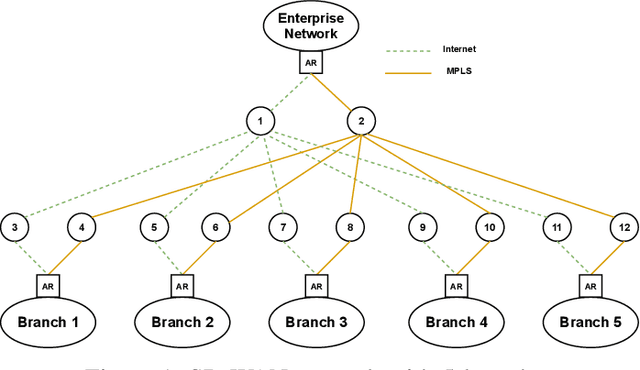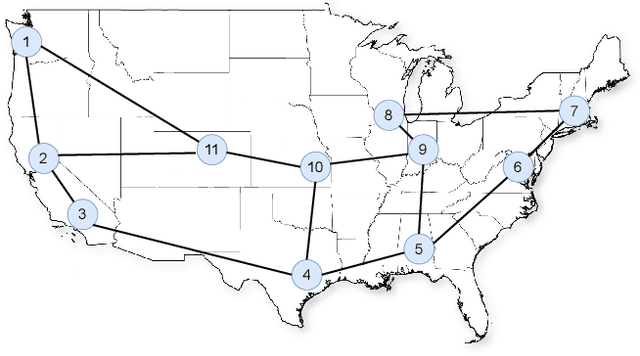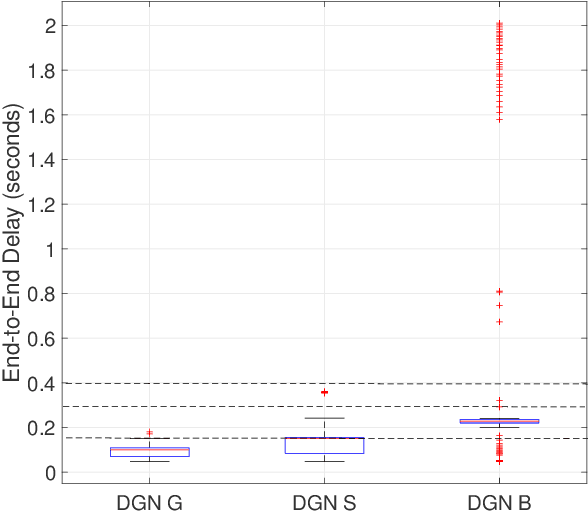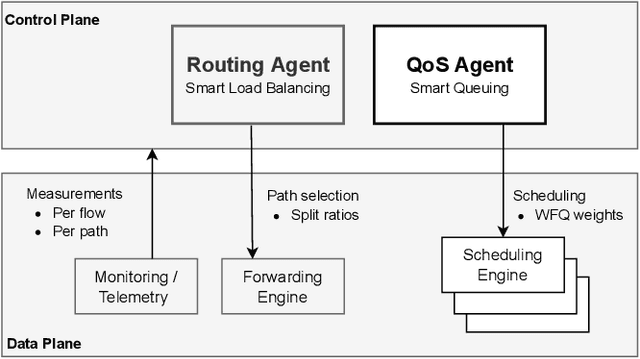Julien Lesca
Online Housing Market
Jan 27, 2025Abstract:This paper studies an online variant of the celebrated housing market problem, where each agent has a single house and seeks to exchange it for another based on her preferences. In this online setting, agents may arrive and depart at any time, meaning that not all agents are present on the housing market simultaneously. I extend the well known serial dictatorship and Gale s top trading cycle mechanisms to this online scenario, aiming to retain their desirable properties such as Pareto efficiency, individual rationality, and strategy proofness. These extensions also seek to prevent agents from strategically delaying their arrival or advancing their departure. I demonstrate that achieving all of these properties simultaneously is impossible in the online context, and I present several variants that achieve different subsets of these properties.
Graph Convolutional Reinforcement Learning for Collaborative Queuing Agents
May 24, 2022



Abstract:In this paper, we explore the use of multi-agent deep learning as well as learning to cooperate principles to meet stringent service level agreements, in terms of throughput and end-to-end delay, for a set of classified network flows. We consider agents built on top of a weighted fair queuing algorithm that continuously set weights for three flow groups: gold, silver, and bronze. We rely on a novel graph-convolution based, multi-agent reinforcement learning approach known as DGN. As benchmarks, we propose centralized and distributed deep Q-network approaches and evaluate their performances in different network, traffic, and routing scenarios, highlighting the effectiveness of our proposals and the importance of agent cooperation. We show that our DGN-based approach meets stringent throughput and delay requirements across all scenarios.
Chore division on a graph
Dec 05, 2018



Abstract:The paper considers fair allocation of indivisible nondisposable items that generate disutility (chores). We assume that these items are placed in the vertices of a graph and each agent's share has to form a connected subgraph of this graph. Although a similar model has been investigated before for goods, we show that the goods and chores settings are inherently different. In particular, it is impossible to derive the solution of the chores instance from the solution of its naturally associated fair division instance. We consider three common fair division solution concepts, namely proportionality, envy-freeness and equitability, and two individual disutility aggregation functions: additive and maximum based. We show that deciding the existence of a fair allocation is hard even if the underlying graph is a path or a star. We also present some efficiently solvable special cases for these graph topologies.
 Add to Chrome
Add to Chrome Add to Firefox
Add to Firefox Add to Edge
Add to Edge